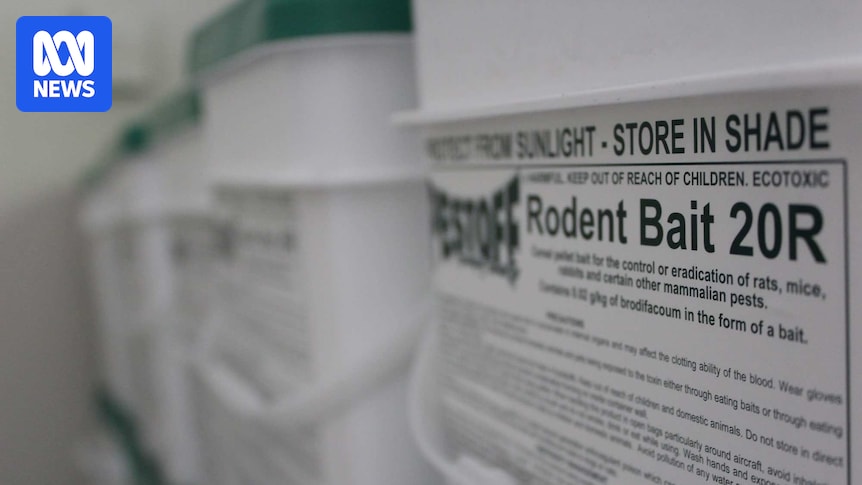Queensland Health is investigating after five people were hospitalised with symptoms of ingesting rat poison in the South East.
Chief Health Officer Catherine McDougall said authorities were working to determine the source.
“Five individuals presented in the last week, from a similar geographical area, with symptoms consistent with brodifacoum poisoning,” she said.
“Thankfully, all are fine and receiving treatment.
“Clinicians have been asked to monitor for presentations with similar symptoms. This is routine when patterns in patient presentations are identified.”
Brodifacoum is commonly found in rat poison and reduces vitamin K, which is essential for blood to clot.
It can cause bleeding if ingested by humans, such as bleeding gums, easy bruising and blood in urine or stool.
Authorities are urging all hospitals, GPs and pathology laboratories to be alert to the possibility of brodifacoum poisoning following the possible poisoning cluster.
It is understood all five cases were identified in the Metro South Health region, which includes Logan and Princess Alexandra hospitals.
‘Nothing to be alarmed about’
Dr McDougall said there was “nothing for the community to be alarmed about at this time” and Queensland Health would notify the community if there was a risk to public health.
Catherine McDougall says clinicians have been asked to monitor for presentations with similar symptoms. (Supplied: Queensland Health)
“I encourage anyone with concerns about their health to see their doctor, present to the emergency department or contact 13 43 25,” she said.
According to Queensland Health, it has not been established how much rat poison is needed to get sick, as it varies from person to person.
The antidote for proven poisoning is vitamin K. Exactly how this is given will depend on the person’s clinical condition.
As brodifacoum is a long-acting anticoagulant (a drug that prevents blood clotting), treatment may be needed for some weeks, but this can vary from case to case.

